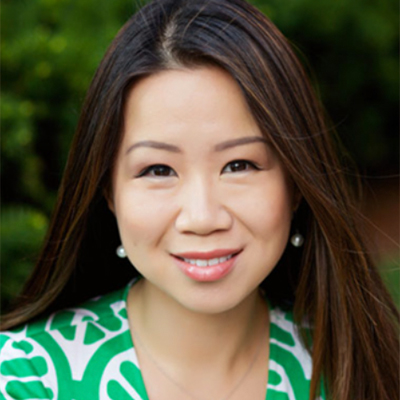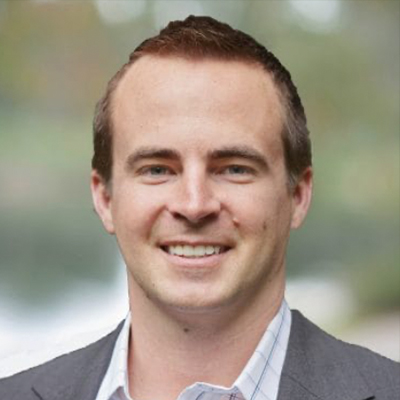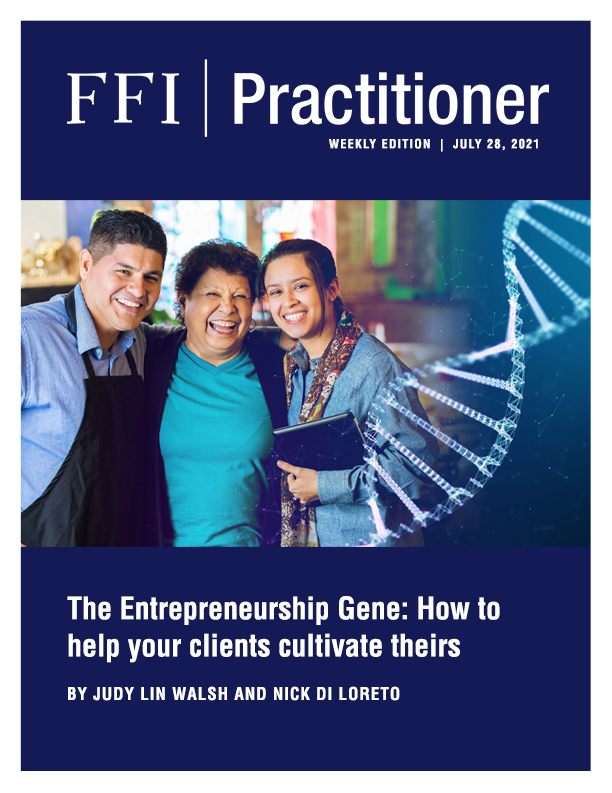
For example, we know of one family whose legacy business was disrupted several times throughout history. Anticipating the next disruption, they created a new venture fund to back the next generation’s entrepreneurial ideas. Another family seeded a shared investment fund to teach their next generation how to invest together. In different ways, both these approaches inspired their next generation to take risks and create new growth engines.
Edouard Thijssen, a fifth-generation member of the Belgian family that owns the Aliaxis Group, experienced this firsthand. Edouard, along with his co-founder Edouard Janssen from the Solvay family, founded Trusted Family when he was in his twenties. Now CEO, Edouard shared with us how he tapped his entrepreneurial gene and leveraged his family’s support to build a successful business, while still exercising his independence.
As Edouard recalls, “My ancestors were true entrepreneurs. Belgium being a small country, they were forced to think globally early on.” From archive letters, carefully restored and passed along to each generation, Edouard first honed his “Think Global” mindset: “If you see a problem, consider how to bring a solution to the world.” And his father further inspired him “to do whatever he wants to in his life, as long as it is relevant, can be scaled, and has an impact.”
Through our conversations with Edouard and our own experience working with business families, we offer five tips that advisors can offer families to help them cultivate the entrepreneurial gene.
1. Leverage the family business as a competitive advantage.
One of Edouard’s greatest advantages – he realized in hindsight – was how much his elders expected of him before they would consider providing a dime. “Before, he was my dad. When I approached him about Trusted Family, he became someone with whom I had a professional relationship.” And through that relationship, Edouard was expected to navigate a rigorous process including:
- Developing a detailed business plan
- Testing it with prominent business leaders (family, family connections, cold calls)
- Building a proof of concept (a working test site for his family)
Importantly, his family offered expertise and connections, but not carte blanche. If anything, their expectations were higher than outside investors. “Several family members are entrepreneurs in their own right, so they could provide inspiration, coaching, and mentoring.” They knew what it takes to turn an entrepreneurial vision into a viable business. Had his family simply funded his venture as some sort of vanity project, he may not have forced himself to prepare as well as he did — and he might not have ended up as successful as he has been.
2. Uphold public+ standards and continually experiment.
Smart money only invests when a family venture passes the same rigorous standards as any other start-up in the public arena. If anything, among the families that nurture entrepreneurship well, we’ve found that the family’s expectations exceed that of non-family counterparts. The standard they test for is, “have you helped your clients solve their problem in a fundamentally better way? And, can it be profitable and scalable?”
Trusted Family learned over time that “clients come with a problem, not a solution. Our value is developing solutions for their problems.” As Edouard reflected, “The key is experimentation. We had an independent board member who challenged us to experiment… to define in advance what we’re trying to achieve or learn. It works or it doesn’t. But it helps to stop when an experiment is failing and know when to double down.”
3. Be personally invested and draw extra motivation from family investors.
Having family co-investors raised the stakes and expectations. Edouard didn’t want to lose what his family had entrusted to him, and that motivation helped overcome early doubts. It took 12 months to develop a viable product – the first version of their tool – and three more years to grow a sustainable client base. Today, Trusted Family’s clients include 150+ business families.
4. Apply a board approach.
Smartly, Edouard invited his father and uncle to the board of Trusted Family. “We had a 6-7-member board right away, including family representatives, outside investors, and independent directors. They forced us to think beyond the day-to-day to a higher strategic level.” The board met quarterly, providing time for Edouard to show progress while also allowing space for the board to provide wisdom without micro-managing. It also allowed Edouard to trust his gut on operational decisions and take the board’s input in stride with his vision.
5. Honor the family legacy in your own way.
Despite hailing from a prominent family, Edouard was never guaranteed a safety net. Needing to make his own path and being inspired by his predecessors activated Edouard’s entrepreneurship gene. Notably, necessity is also a powerful motivator cited by many first-generation entrepreneurs.
Sidebar
Presenter: Arnaud de Coninck: Global Partnership Program at Trusted Family
August 2nd from 10AM-11AM Eastern
Trusted Family is a leading governance platform for family, shareholders, boards, and directors. Join this webinar and learn how technology can help you to deliver professional services to your clients by combining a secure set of tools that will help to manage meetings, workflows, sensitive information and real time collaboration between family members, shareholders, board members, and close advisors.
It is important for trusted advisors to help client families keep the big picture in mind. It won’t happen without great effort – it takes commitment and a balance of support and independence to nurture. Continuing the family legacy goes beyond working in the business; it’s about ensuring the family’s “entrepreneurial gene” lives on in successive generations.





